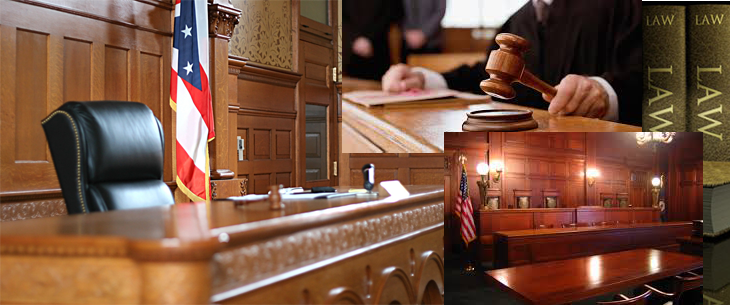Legal Aid for Poor Put at Risk by Proposal to Break Up California State Bar, Claim Critics

Playing in the Family Law Sandbox Together Nicely
May 4, 2016
Getting Your Spouse to Pay Child Support
January 30, 2017By Don Debenedictis, Courthouse News Service
LOS ANGELES (CN) — A proposal to break apart the State Bar of California into a regulatory agency and a separate voluntary trade association drew sharp attacks last week during a daylong public hearing before a special bar committee.Carving off a regulatory agency focused just on the public-protection issues of lawyer licensing and discipline from other state bar activities could cripple the bar’s work to promote legal aid services and access to justice for the poor and middle class, speakers told the Task Force on Governance in the Public Interest. Providing access to justice for all is “part and parcel of what it means to be a lawyer,” said Los Angeles City Attorney Mike Feuer, who previously headed the legal aid provider Bet Tzedek. Any proposal to remove that issue from the State Bar “is very troubling to me,” he said.
Judge Laurie Zelon of the state’s Second Appellate District said access to justice ought to be considered part of protecting the public. elon founded and for years led the California Commission on Access to Justice, which oversees several statewide funds that support legal aid organizations and directs many other projects to bring legal services to those with low and moderate incomes. “All of those initiatives are critical,” Zelon said. “I would submit that without the structure of the state bar those things which seriously keep people protected would be absent.”
Zelon stressed that she spoke for herself, not on behalf of the appellate court. Currently, the state bar decides who can practice law in the state and who should be kicked out of the practice for wrongdoing. It also sells insurance, puts on an annual convention and offers dozens of educational programs.
The issue before the governance task force is whether it should do both at the same time. Last week, two members of the panel — joined by two other bar leaders — sent key California legislators a proposal to cut the bar in two by 2019. In particular, they would split off the bar’s 16 special-interest subgroups or “sections” that focus on areas of practice like litigation and family law. The resulting voluntary association would be “a better champion” for legal services and the court than the current quasi-governmental agency can be, they said. As it is, the bar’s governing board of trustees is “a distracted regulator” that “spends much of its energy on professional association matters” rather than important public protection.
One of the 15 speakers during Monday’s hearing made that point more sharply. “It’s a conflict of interest [for the bar to be] advocating for the profession and advocating for the public,” Bridget Gramme, from the Center for Public Interest Law at the University of San Diego School of Law, said.
But Gramme and others also said there is no reason a purely regulatory agency could not also promote legal services for the poor, improved access to courts, pro bono activities by lawyers and diversity in the legal profession. All those activities benefit the public and could be defined in legislation as part of “public protection,” she and others said. Doing that would “be getting rid of distractions and allowing you to enhance the access to justice function,” Gramme told the task force. Other speakers countered that dividing the state bar would weaken its overall impact.
Beverly Hills trial lawyer Paul R. Kiesel said that because the bar “is a multifocused group, it has a lot more power than if it were a stripped-down group.” Kiesel led a group of lawyers who lobbied the Legislature and governor to restore some funding to the courts after the judiciary budget was cut by more than $1 billion over several years following the 2008 economic crisis. He said state bar leaders were important in those efforts. “The state bar is powerful because of its constituent elements,” he said. “If it ain’t broke, don’t break it.”
The governance task force began its work last year following what an analyst in the state Legislature called “yet another year of extensive and publically reported turmoil” at the bar, including controversy over the firing of the executive director and a critical report from the state auditor. Changes called for by the auditor and the Legislature also put new pressures on the special-interest bar sections. They now must pay much more of their voluntary revenue to the bar for overhead, and they must comply with the state’s arcane and complicated public meeting law. The chair of the business law section, Robert G. Harris of Santa Clara, said his group supports moving to a voluntary bar to get out from under those burdens. Some smaller sections may close under the new financial demands, he said. But Perry Segal, the co-chair of the sections’ combined leadership committee, said that the other 15 sections all support staying within a unified bar.
Another challenge facing the state bar is a U.S. Supreme Court decision from early last year, North Carolina Board of Dental Examiners v. FTC, that says a regulatory agency run by the people it regulates — such as a state bar controlled by lawyers — may violate antitrust laws. “This group is a walking antitrust violation,” Robert C. Fellmeth of the San Diego-based Center for Public Interest Law told the task force. Even setting standards for passing the bar exam could be classified as anticompetitive. Splitting the bar in two could give both the new voluntary association and the remaining regulatory agency greater freedom to act, he said. But there are also risks. Liz Neeley, the executive director of the Nebraska State Bar Association told the task force by phone that after her organization was ordered to de-unify in 2013, the voluntary side quickly lost a quarter of its members. To regain membership, the association had to focus strictly on member services and desires, not on broader legal issues such as access to justice, she said. “The beauty of a mandatory bar is you can look outside yourself,” Neely said. “A voluntary bar association has to be inward-looking.”


2 Comments
Breaking Up California State Bar is not a very good idea if it hampers it in providing legal aid to the economically disadvantaged people, this should be the top priority and goal.
Dan Winster recently posted…Common Bankruptcy Myths
There are any number of reasons for not breaking up the State Bar.